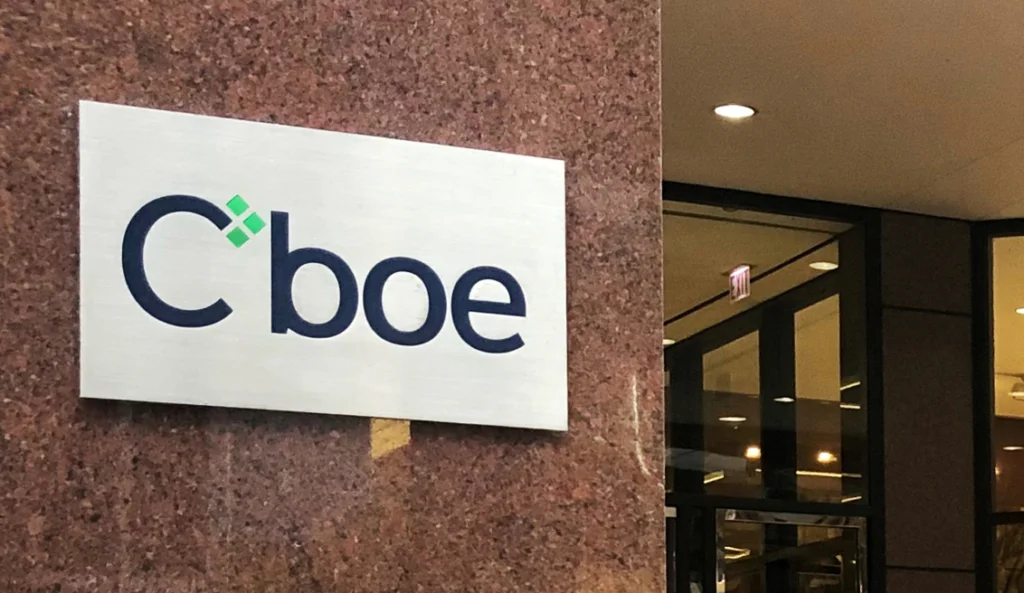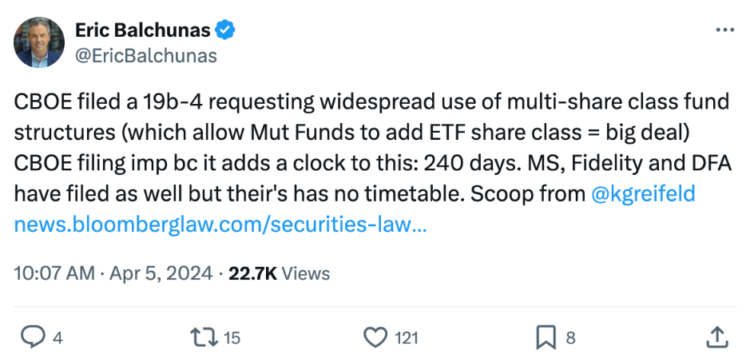Cboe Global Markets has requested that the Securities and Exchange Commission (SEC) approve a structure enabling issuers to merge exchange-traded funds (ETFs) and mutual funds.

A Reuters story from April 4 states that Cboe filed a 19b-4 form seeking approval to add an ETF share class to already-existing mutual funds, enabling a fund structure with several share classes. The regulation would let issuers bundle comparable ETFs and mutual funds into a single investment vehicle if accepted.
If the SEC grants Cboe’s request, “both the number of ETFs and ETF assets could soar,” according to Todd Sohn, an ETF analyst at Strategas LLC, who spoke with Reuters.
There are distinct operational and legal distinctions between mutual funds and exchange-traded funds (ETFs). Usually, at the end of the trading day, mutual funds are bought and sold at a price determined by their net asset value (NAV), which is determined following the market closure.

On the other hand, ETFs are subject to fluctuations and trade on exchanges at market prices throughout the trading day, much like stocks. Shares of a Bitcoin ETF may be added to a mutual fund’s portfolio to provide exposure to the digital asset if the regulation change is granted.
There won’t be anything unique about the suggested system. The Vanguard Group has offered its ETFs with a distinctive “share class” structure since 2001 thanks to a patented investment method.
This structure allowed Vanguard to offer ETFs as a share class of their mutual funds, which shared the same underlying portfolio. In May 2023, Vanguard’s patent on this idea of a share class ran out.
Eight asset managers, including Fidelity, Morgan Stanley, and Dimensional Fund Advisors, have reportedly applied for regulatory approval to duplicate the strategy since then, according to Reuters. JP Morgan and T. Rowe Price have also indicated interest in employing a comparable approach.
The SEC has two hundred and forty days to approve or reject Cboe’s application. According to Eric Balchunas, an analyst for Bloomberg ETFs, the filing allows issuers to compel the SEC to reply to their petitions.
Mordor Intelligence projects that the North American ETF market will surpass $8 trillion in 2024 and increase at a 14% compound annual growth rate to reach $15.52 trillion by 2029.
